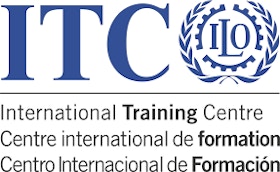The course aims to strengthen the capacity of participants to understand the principles of ILS as they relate to company operations (including due diligence related to labour rights) and how those principles can be most effectively implemented in company operations.
Companies are under increased pressure, stemming from stakeholder expectations, reporting requirements, conditions for tendering, etc., to conduct due diligence on human rights issues in their own operations and with business partners in their supply chains. Labour related human rights—child labour, forced labour, freedom of association and collective bargaining, non-discrimination, conditions of work and social protection—are relevant to all company operations. Although much has been written in general about due diligence, labour issues pose particular challenges for companies.
Proper due diligence on labour issues starts with a good understanding of what is expected of companies concerning respect for workers’ rights. The principles contained in international labour standards (ILS) have become the essential reference point for companies in addressing labour issues in corporate social responsibility (CSR) initiatives. Yet, ILS are addressed to governments and the implications for companies, from a conceptual and practical point of view, are not always clear. This can lead to confusion, lack of coherence and misunderstandings when companies are confronted with specific situations. Building on this understanding, the course will then examine good practice regarding due diligence pertaining to workers’ rights.
Teaching sessions will feature specialists working in companies and multi-stakeholder initiatives located in various regions of the world. Drawing on the experience of the ILO Helpdesk for Business, breakout sessions will provide participants an opportunity to discuss and debate some of the more complex issues companies face when putting principles into practice such as what to do when national law is not consistent with ILS, how to balance competing rights, where to draw the line is contributing to social development, and what to do when the government is not fulfilling its duty to protect. The course will also help practitioners anticipate how the recently adopted Sustainable Development Goals may impact CSR practice concerning labour rights and enterprise development.
This course is designed for CSR professionals (in companies, consulting firms, CSR initiatives, government, workers, etc.) seeking to align operations, including supply chains, with ILS principles or dealing on a daily basis with challenges related to respecting these ILS principles. Managers of companies supplying to brands who are faced with many, and often conflicting, demands, may find this course particularly useful. Trade unionists, NGOs and government officials dealing with national CSR policies and/or National Action Plans on Business and Human Rights will also find it beneficial. The course will provide a platform for dialogue and knowledge exchange as well as a forum for interaction and networking with professionals who work on a regular basis on the intersection of human rights, Decent Work, CSR and sustainable development.
ILO is the specialized agency of the United Nations mandated to adopt and monitor the implementation of International Labour Standards. Since its inception in 1919, ILO has accumulated a wide range of expertise concerning the application of ILS principles to company and government operations; and regularly analyses international trends and collects company case studies.
Publish your content with EB Premium
It's not about how many you reach. It's about who. Get your news, events, jobs and thought leadership seen by those who matter to you.











